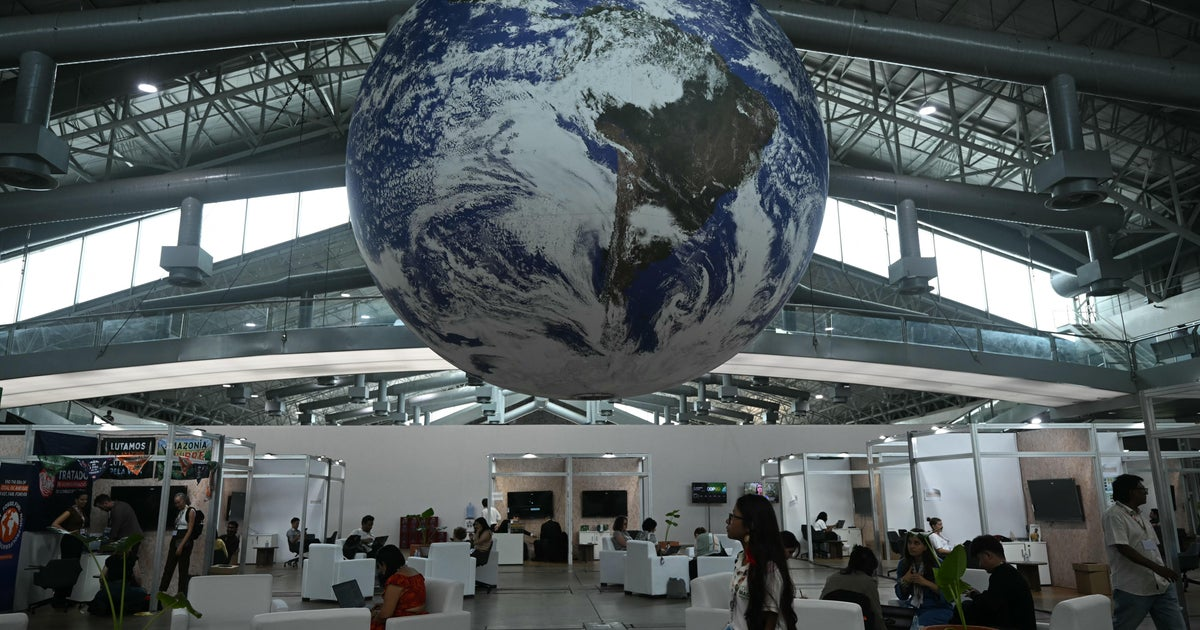-
-
by
News PRO
U.N. climate negotiations get underway Monday at a meeting on the edge of the Brazilian Amazon, with leaders pushing for urgency, cooperation and acceleration after more than 30 years fighting to curb global warming by drastically reducing the carbon pollution that causes it. André Corrêa do Lago, president of this year’s conference, known as COP30, emphasized that negotiators engage in “mutirão,” a Brazilian word derived from an Indigenous word that refers to a group uniting to work on a shared task.”Either we decide to change by choice, together, or we will be imposed change by tragedy,” do Lago wrote in his letter to negotiators Sunday. “We can change. But we must do it together.”Complicating the calls for togetherness is the United States. The Trump administration did not send high-level negotiators to the talks and is withdrawing for the second time from the 10-year-old Paris Agreement, which is being celebrated as a partial achievement here in Belem. The United States has put more heat-trapping carbon dioxide into the air from the burning of coal, oil and natural gas than any other country. China is the No. 1 carbon polluter now, but because carbon dioxide stays in the air for at least a century, more of it was made in the U.S.”I think the environment we are in, the geopolitical landscape, is particularly challenging,” said Palau Ambassador Ilana Seid, who chairs the Alliance of Small Island States. Small island nations suffer some of the worst effects of climate change because rising seas swallow land. “The United States withdrawing from the Paris Agreement has really shifted the gravity” of the whole negotiating system.President Trump’s actions damage the fight against climate change, former U.S. Special Envoy for Climate Todd Stern said. “It’s a good thing that they are not sending anyone. It wasn’t going to be constructive if they did,” he said. A report out earlier this year from the World Meteorological Organization warned that climate change is accelerating, with some impacts now irreversible for centuries. The State of the Global Climate report confirmed global temperatures, greenhouse gas emissions and sea levels all reached record highs in 2024. In a mission statement published ahead of COP30, organizers wrote, “We have made progress, but not enough. Climate change is no longer a threat of the future. It is a tragedy of the present.” “We need to accelerate the fight against global warming and strengthen multilateralism in combating climate change,” they said, noting that “climate change has increased the exposure of the poorest to natural disasters.”In a letter to negotiators released late Sunday, Simon Stiell, the U.N. climate chief, said the 10-year-old Paris Agreement is working to a degree, “but we must accelerate in the Amazon. Devastating climate damages are happening already, from Hurricane Melissa hitting the Caribbean, Super Typhoons smashing Vietnam and the Philippines, to a tornado ripping through Southern Brazil.”Not only must nations do more faster but they “must connect climate action to people’s real lives,” Stiell wrote.The Nature Conservancy chief scientist Katharine Hayhoe compared the multinational negotiations to a potluck dinner.”Everybody brings the contributions that they are making,” which in this instance are new and strengthened plans to cut carbon pollution, Hayhoe said. “And it’s obvious who took the time to bake the fresh pie with fruit that they picked and who fished out that year old chicken frozen chicken nuggets from the back of their freezer.””The United States as a country will not be showing up with a dish,” Hayhoe said. However, she and several others including former lead American negotiators are pointing to U.S. cities, states and businesses that they said will take up the slack.
Share this:
- Click to share on Facebook (Opens in new window) Facebook
- Click to share on X (Opens in new window) X
- Click to share on Reddit (Opens in new window) Reddit
- Click to share on LinkedIn (Opens in new window) LinkedIn
- Click to share on Pinterest (Opens in new window) Pinterest
- Click to share on Tumblr (Opens in new window) Tumblr
Related
OUTLAW CHEMICAL FREE SOAPS AND NATURAL BODY PRODUCTS!

PPR MERCH HERE NOW! CLICK THE AD TO SHOP!!!


New Orleans Pelicans News
Rockets Stun Pelicans in Wild 130-128 Birmingham Finish

New Orleans Saints News
The Monday After: 10 Good and Bad Items from Saints/Patriots Match

New Orleans Saints News
Saints Monday After: Tough Loss, McCoy Out, Rattler Still Starter















